The Angoulême International Comics Festival is facing mounting controversy and growing public outcry – and two petitions – following the announcement of a Bastien Vivès exhibition as part of its January 2023 programming. Bastien Vivès, long known as the “bad boy” of bande dessiné, is a big get but some of his more provocative work has been criticised for promoting incest and paedophilia.
Embed from Getty ImagesEntitled “From the Eyes of Bastien Vivès“ (“Dans les yeux de Bastien Vivès”) the exhibition will give the artist “carte blanche to design his own exhibition” at Angoulême. It will open the weekend of the festival (26 to 29 January, 2023) and run to March 12. To receive an exhibition of your work there is a huge honour and high profile – other exhibitions in 2023 include the work of Marguerite Abouet, Julie Doucet, Ryōichi Ikegami, Junji Itō, and Philippe Druillet. Unfortunately with this publicity old scandals and controversies are liable to re-emerge.
Bastien Vivès is best known in English for the graphic novel Polina and the Lastman series – which Skybound is in the process of rereleasing in full. He rose to fame in the 2000s, first getting recognised by major publishing house Casterman with 2007 book Elle(s) as part of its Editions KSTЯ imprint. In 2009 he received Angoulême’s newcomer prize (Prix Révélation) for Le Goût du Chlore (A Taste of Chlorine). His 2011 book Polina received the ACBD Critics Prize and has been adapted into a movie. The twelve-book Lastman series (Casterman, 2013-2019) created in collaboration with Balak and Michaël Sanlaville, proved a hit as well, further raising his profile. While he has seen immense success for more mainstream, public-friendly and critically acclaimed works he has also another somewhat provocative side – and this is what has landed him in trouble, with some saying they are akin to child pornography and promoting incest. His past public statements have also not helped him. With the announcement of the high profile carte blanche Angoulême exhibition, his critics have returned in force on social media and petitions have emerged with growing signature numbers calling for the exhibition to not go ahead.
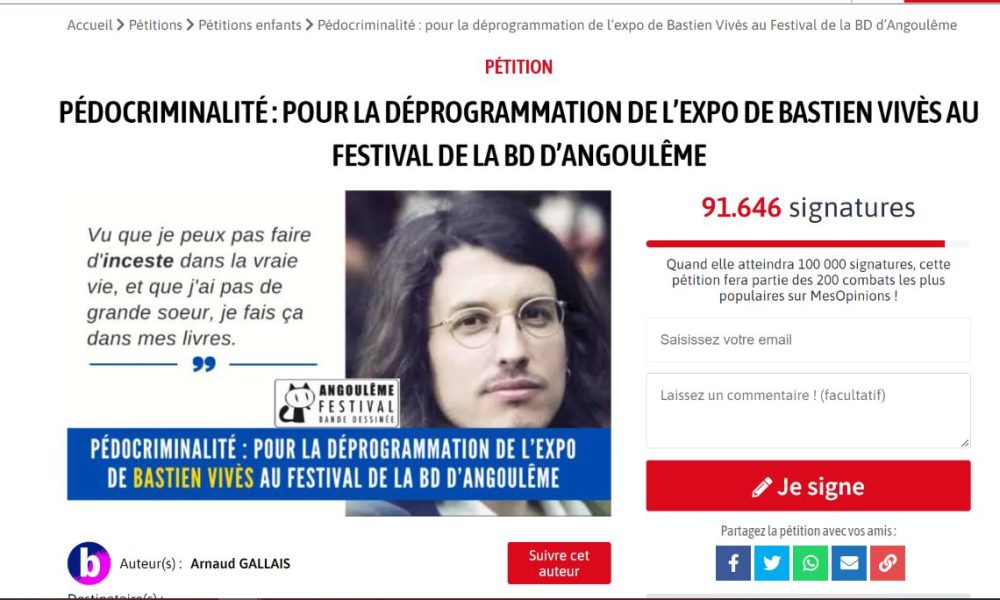
The largest petition is by Arnaud Gallais started on December 8, 2022 on MesOpinions.com. It has accrued over 90,000 signatures. According to his Twitter bio Gallais is a cofounder of sexual violence NGO Prévenir et Protéger [tr: Prevent and Protect] and a Be Brave France member. Roughly translated the petition is entitled “Pedocriminality: For the Removal of the Bastien Vivès Exhibition from the Angoulême Comics Festival” (“Pédocriminalité: Pour La Déprogrammation De L’Expo De Bastien Vivès Au Festival De La BD D’Angoulême”). It says [translated via DeepL]:
“We denounce the trivialization and the apology of incest and pedophilia organized by the cartoonist Bastien Vivès through his works and his dangerous comments.”
The petition is directed both at the festival and at the sponsors and partners who they feel directly or indirectly condone the exhibition.
“The International Comics Festival of Angoulême has many private and public partners: https://www.bdangouleme.com/partenaires-fibd
“We ask them to react quickly and we remind them that the protection of children should be a priority.
“Alongside Be Brave France, we ask the International Comics Festival of Angoulême to withdraw the exhibition of Bastien Vivès, which is an apology for paedophilia and incest, and to ensure that the programming takes into account the fight against sexual violence.”
Be Brave France is a part of the Brave Movement which aims to globally fight sexual violence against minors and adolescents.
A second, smaller petition organised by Angoulême art students on change.org has amassed over two thousand signatures. This one is condemns his work for child pornography and misogyny and likewise calls for it to be removed.
Vivès has previously been in hot water on this very subject in 2018 with the release of his graphic novel Petit Paul (Glénat), which is about a 10-year-old boy with a very large penis, as the Beat reported at the time. It was released as part of the publisher’s Porn’Pop line of comics erotica. While it was likely intended more as farce than titillation, the outcry led to major French bookstores removing it from shelves. This seems to be the main source of the controversy but is not the only one. Another much smaller work La Décharge mentale (tr. Mental Discharge), published by Les Requins Marteaux, features incest. There are also similar complaints about implied incest in Une sœur (The Sister) and the hypersexualisation of women in Le Chemisier (The Blouse) – published by Casterman in French and Ablaze in English.
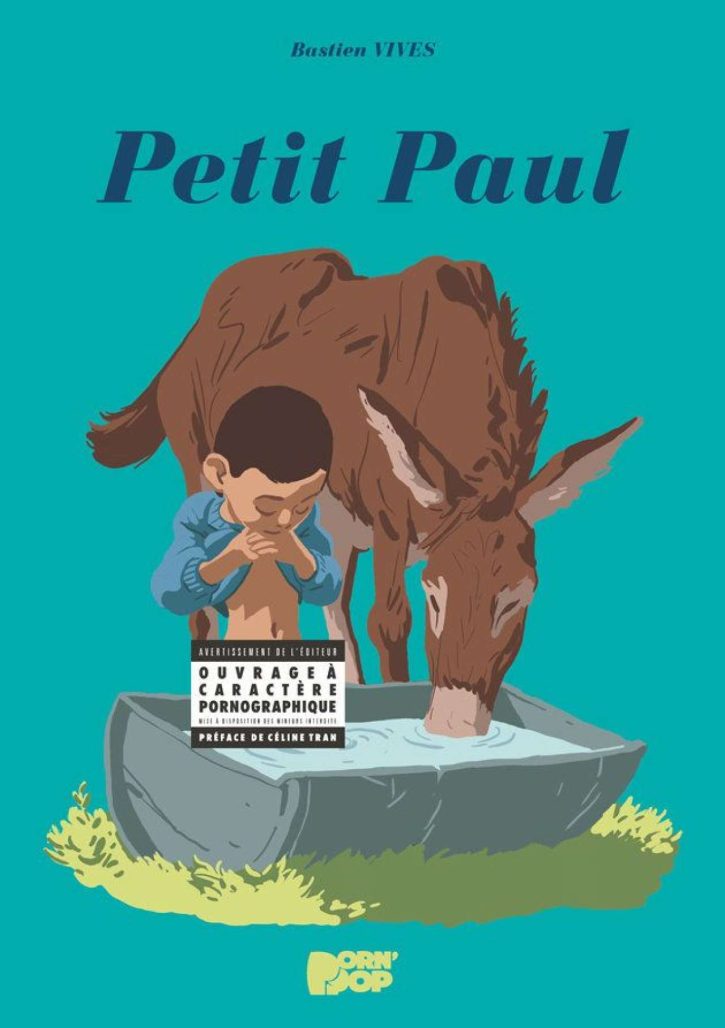
The story has caught the attention of the mainstream French press. On Friday Libération, one of France’s largest newspapers, covered the story in some significant detail. More French media outlets followed suit on Monday and Tuesday.
In the Libération piece, which interviewed and quoted numerous subjects on the issue, it said that:
“The author as well as his publisher [Casterman] are convinced: these attacks are perhaps to be framed as part of the post-#MeToo era but especially in the post-Charlie [Hebdo] era, which is formidable towards caricatures on forbidden subjects. In any case, they indicate that yesterday’s obvious boundaries seem to be threatened today: the difference between representation and adherence, between transgression and exaltation, between the ethics of the author and the [fictional] character.”
Casterman editor Benoît Mouchart is quoted as saying:
“There is still a distressing confusion between what a character, a narrator and an author think … I feel like we are reliving the trial against Flaubert for Madame Bovary, or that of The Flowers of Evil of Baudelaire!”
Vivès in the piece said that in his controversial works:
“I represent them in a comical way but I have zero incestuous or paedophilic fantasies.”
and,
“me, my fantasy is the enlargement of the body, both male and female”.
The author has also posted a ten-panel cartoon on his Instagram lampooning the controversy.
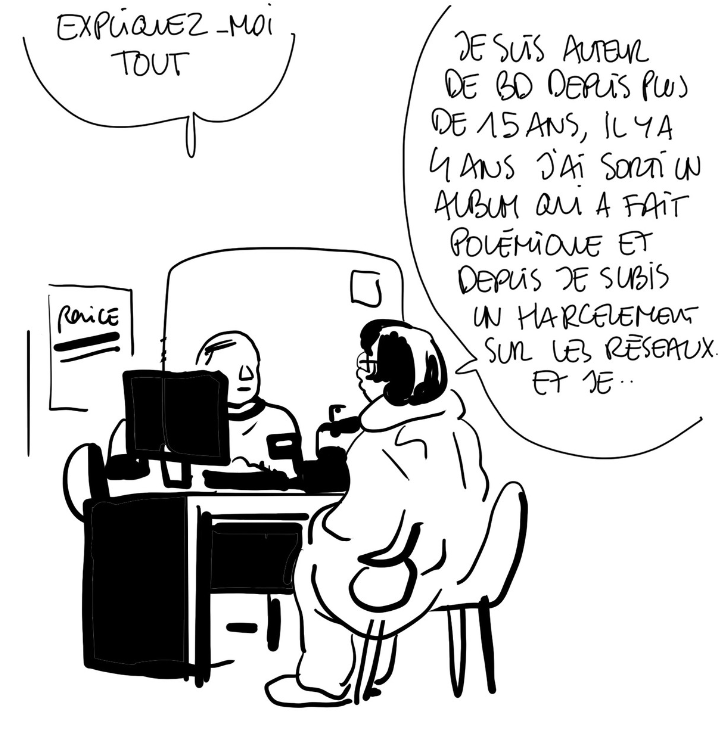
For Angoulême, it is once again at the receiving end of controversy and is averse to backing down – seeing the conflict as one about protecting artistic freedom. Fausto Fasulo, co-artistic director of the festival told Libération:
“Considering what he does – that is to say, just expressing himself artistically – it seems to me to this day [the controversy is] disproportionate.” With removing the exhibition being: “obviously out of the question. It would be a huge philosophical defeat”.
In the comics scene Bastien Vivès has become a divisive figure, whose need to provoke to be provocative reflects poorly on the craft. Cartoonist Boulet said on Twitter [translated], after being infuriated by Vivès’ attendance at a Les Crayons Solidaires charity event:
“My position has been the same for years: I think that Vivès makes despicable comments, behaves like shit on the networks and that he made drawings to be puked on. I told the orga[nisation] that I was disgusted that he was there tonight and that it pissed me off to be associated with him.”
Ma position est le même depuis des années: je pense que Vivès tient des propos abjects, se comporte comme une merde sur les réseaux et qu'il a fait des dessins à gerber.
J'ai dit à l'orga que j'étais dégoûté qu'il soit là ce soir et que ça me faisait chier d'être associé à lui.— -Boulet- (@Bouletcorp) December 1, 2022
Sophie Guerrive posted on Facebook [translated]:
“It goes without saying that I am, like many, quite disturbed by the decision of the Fibd Angouleme to exhibit Bastien Vivès this year.
“The guy is unfortunately representative of a whole fauna of male authors who confuse comic book storytelling with egocentric sexual fantasy. It turns out that he goes a bit further than most, as Emma explains here.
“I’m not comfortable with militant action and I think the best thing we can do as writers to counteract this nonsense is to try to make good comics to make it go away like the computer made the Minitel disappear. I know that new generations of authors will succeed because they are really great.
“In the meantime, we can’t just say nothing.”
Other more recent complaints levied against the festival have also resurfaced – calling out the selection of another man with a history of producing controversial material for a carte blanche exhibition (where he gets free rein to design as he wishes) while only two women – Margeurite Abouet and Julie Doucet – are being given such headline treatment. Cartoonist and commentator Emma, posted on Facebook [translated]:
“If I tell you all this, it’s because outside the feminist sphere, everyone is silent.
“[Social] Networking compels, the influential artists of the festival do not speak out, or else very discreetly.
“Dear colleagues, it is time to speak out clearly, publicly and visibly about this character and his illegal productions.
“And to @bdangouleme: frankly, SHAME. Deprogram.”
Things continue to heat up and this story seems to only be building.


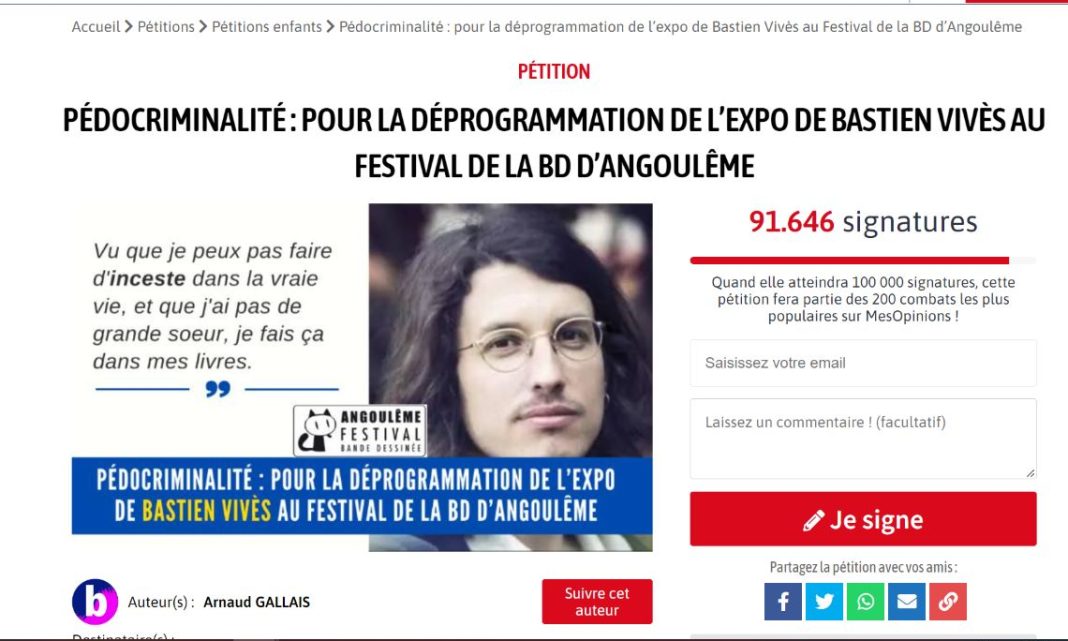
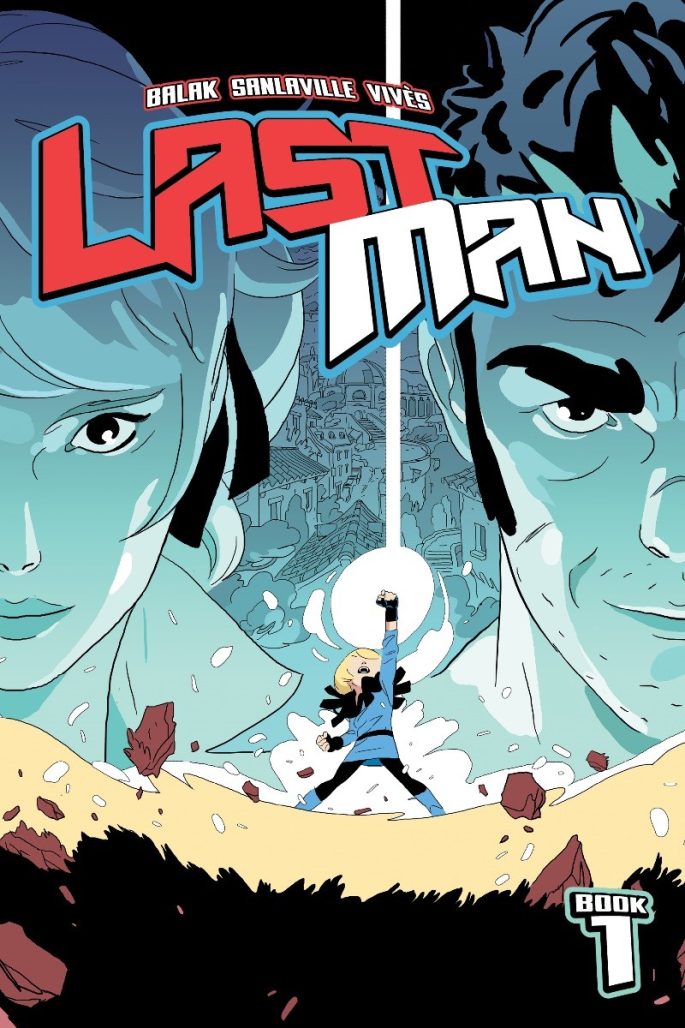
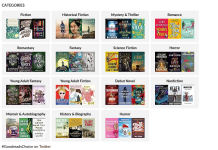





I haven’t fully understood the backstory, but it seems to be a bit of old bad blood between Vivès and the feminist cartoonist Emma, after Vivès posted some particularly vitriolic comments on social media some years ago.
When they were picked up again by media, Vivès sort of made an excuse, it seems.
Comments are closed.